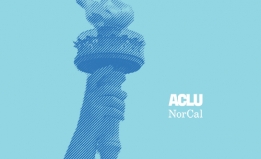
Blog
We can be pretty sure that each new day will bring two things: new threats to our civil liberties, and new stories of people standing up for their rights and winning. Behind every court ruling is a person. Behind every landmark law is a movement. Read the stories and hear the voices that ground our work.
Content, Context, and Control: Facial Recognition and Privacy
Dec 08, 2011
Photographs don't just capture your laughter and tears. They can also reveal the details of your life: the people you know, the events you attend, and more. And facial recognition makes it easy to link any photo of you--even one you didn't know you were in--to your name and identity. This could make it impossible to attend a support group meeting or political rally without sharing that information...
Read More
Facebook Is Abiding By Its Own Rules, Great! Now How About Good Rules For Everybody?
Nov 29, 2011
Today, Facebook agreed to settle Federal Trade Commission (FTC) charges that it deceived customers by failing to uphold privacy promises. The FTC announced today that the social networking site "deceived consumers by telling them they could keep their information on Facebook private, and then repeatedly allowing it to be shared and made public. The proposed settlement requires Facebook to take sev...
Read More
The Facebook/FTC Settlement Proposal: What's New, What's Not
Nov 29, 2011
Earlier today the FTC announced a proposed settlement with Facebook, addressing its assertion that Facebook deceived users by failing to uphold its privacy promises. As we said elsewhere, the proposed settlement has one major step forward: it prohibits the company from "begging forgiveness instead of asking permission" by changing its privacy settings to make data more public or share it with more...
Read More
Judge to Feds: to Track Cell Phones, Get a Warrant
Nov 17, 2011
Catherine CrumpACLU National OfficeIn a victory for the privacy rights of everyone with a cell phone, a court has held that law enforcement agents must get a warrant to access cell phone location records. The ACLU, ACLU of Texas and Electronic Frontier Foundation submitted a brief urging the court to adopt exactly this position. The Constitution requires nothing less.In the case, the government as...
Read More
It Was Close, But We Won: Viva Net Neutrality!
Nov 10, 2011
By Sandra FultonACLU Washington Legislative OfficeToday in the Senate there was a major win for freedom of speech and the Internet. In a largely partisan vote Senate Democrats defeated a resolution introduced by Sen. Kay Bailey Hutchison (R-Texas) which would have overturned the Federal Communications Commission's (FCC) open Internet rules that are set to go into effect this month.Though the FCC's...
Read More
U.S. Continues to Blow Away the Field in Demanding Information from Google
Oct 25, 2011
We know that the government takes advantage of outdated privacy law to demand our personal information from online services that collect and hold our data. But what we rarely know is exactly how often this happens: the government isn't required to reveal how many demands for information they make or how many individuals are affected, and companies rarely volunteer this information. One of the very...
Read More
Online Privacy Law Turns a Quarter of a Century Old Today
Oct 21, 2011
Today, the Electronic Communications Privacy Act (ECPA) turns 25 years old. On October 21, 1986, President Ronald Reagan signed ECPA into law. As Wired reported today on the "Aging 'Privacy' Law," ECPA was passed "at a time when e-mail was used mostly by nerdy scientists, when phones without wires hardly worked as you stepped out into the backyard, and when the World Wide Web didn't exist. Four pr...
Read More
Want to Read My Email? Not Without a Warrant.
Oct 20, 2011
Catherine CrumpACLU National OfficeCongress hasn't updated our basic electronic privacy law since 1986, long before most Americans sent their first email. So it's no surprise that our privacy protections haven't kept pace with new technological advancements. The current law even allows the government to read virtually all of our emails without a warrant. This extraordinary power is an egregious vi...
Read More
Aww, an Anniversary Present for Us, How Nice!
Oct 20, 2011
By Christopher CalabreseWashington Legislative OfficeWe were planning to do a blog post every day to draw attention to Electronic Communication Privacy Act's (ECPA) anniversary but Senate Judiciary Committee Chairman Patrick Leahy (D-Vt.) gave us an anniversary present and we couldn't resist doing an extra one to crow about it.The senator announced today that the Senate Judiciary Committee, w...
Read More
Congress Calls Up 1986
Oct 19, 2011
This week, our federal online privacy law turns 25. The ACLU is hosting a blog series that will address some of the many reasons why the Electronic Communications Privacy Act of 1986 (ECPA) is in need of an upgrade! Spread the word using #UpdateECPA, and to learn more about your dotRights, visit www.aclu.org/ecpa.In honor of ECPA's 25th birthday this week, Congress had the chance to walk down di...
Read More
Location Privacy: Anyone Sensing a Theme Here?
Oct 18, 2011
By Christopher CalabreseWashington Legislative OfficeBack in June Representative Jason Chaffetz (R-UT) and Senator Ron Wyden (D-OR) filed companion bills in the House and Senate to protect cell phone users' privacy. The "Geolocational Privacy and Surveillance Act" (GPS Act) would require law enforcement to get a warrant before they access location information. The goal is to protect privacy b...
Read More
ECPA: Online Privacy Stuck in the '80s
Oct 17, 2011
By Rekha ArulananthamACLU National OfficeWhat were you doing in 1986? Maybe you were wearing acid wash jeans, crimping your hair, or watching Wil Wheaton, River Phoenix, Corey Feldman, and Jerry O'Connell in 1986's Stand By Me. In 1986, Congress was enacting the law that protects the privacy of online communications, the Electronic Communications Privacy Act (ECPA).Now, think for a second abo...
Read More

